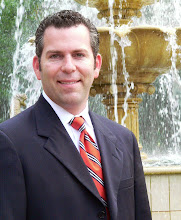St. Theophan the Recluse (1815-1894), Russian asectic, bishop, and prolific author
I don't know about you, but prayer intimidates me a bit. I'm not by nature a contemplative, and the thought of being alone in a room with just my thoughts (just as likely to be about baseball or some banal subject) is a bit scary. I've discovered that I need coaches or guides in prayer.
One I've discovered is a guy named Theophan the Recluse. I know, I know--any guy with "Recluse" in his name, who's not a spider, has got to be a little creepy. Don't let that intimidate you; he was just a Russian monk of the 19th century. Monks are the ones through history who've made a point of retreating from society in order to think more deeply about God, and cultivate a life of contemplation and prayer. Theophan's main contribution to Christian spirituality was his translation of a group of writings on prayer called the "Philokalia" into Russian.
He says something that helps me, and addresses some of my prayer insecurities.
Recall how you prayed and always strive to pray this way, so that prayer comes from the heart and is not just thought by the mind and chattered by the tongue.
When he says, "prayer...chattered by the tongue" I know just what he means. In my tradition, prayer is considered "good" if it is long, eloquent, and (usually) loud. My tradition values free-form prayer laced with spiritual-sounding phrases like "washed in the blood of the Lamb" and "sanctified and set-apart by the sinless substitutionary atonement of Jesus..." I know all about prayers "chattered by the tongue" and they do much to intimidate me in my own prayer life.
My new friend the recluse, perhaps because he has spent more time praying alone than to try to impress others, speaks of a different kind of prayer-- the prayer that comes from the heart. The thought in this more Eastern method of prayer was to memorize a simple prayer, sometimes called a "breath prayer" and repeat it often enough that the words weren't central. It was a "known-by-heart" prayer.
This kind of heart prayer takes me out of the competition mode. It puts me into more of a contemplative moment, allowing me to reflect on what God might have to say to me. This I think, is what Theophan must have intended. Perhaps that is why the saint once known as "George" took the name Theophan which means "God appears." When we pray from the heart, God often appears.
How do you feel about prayer?





